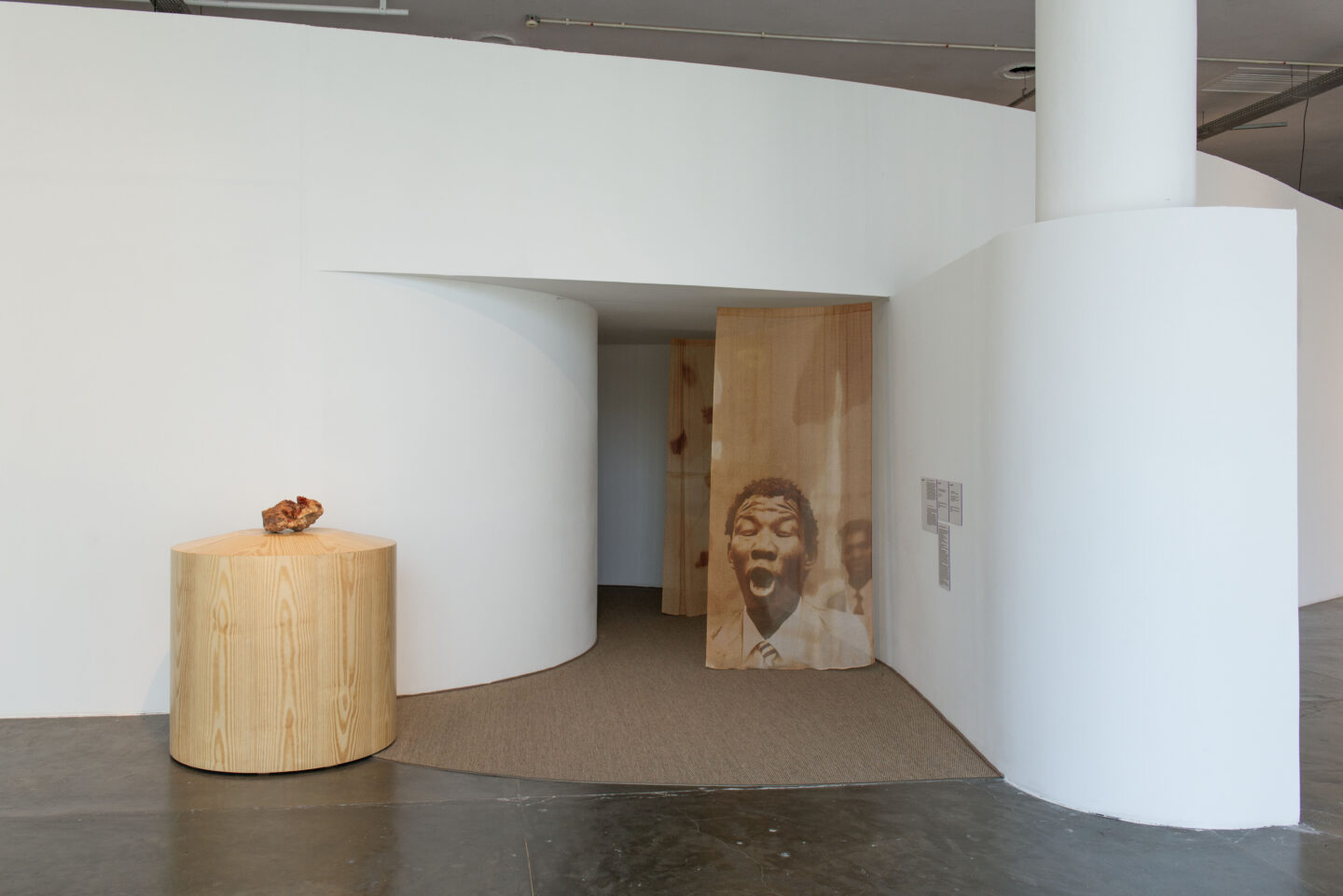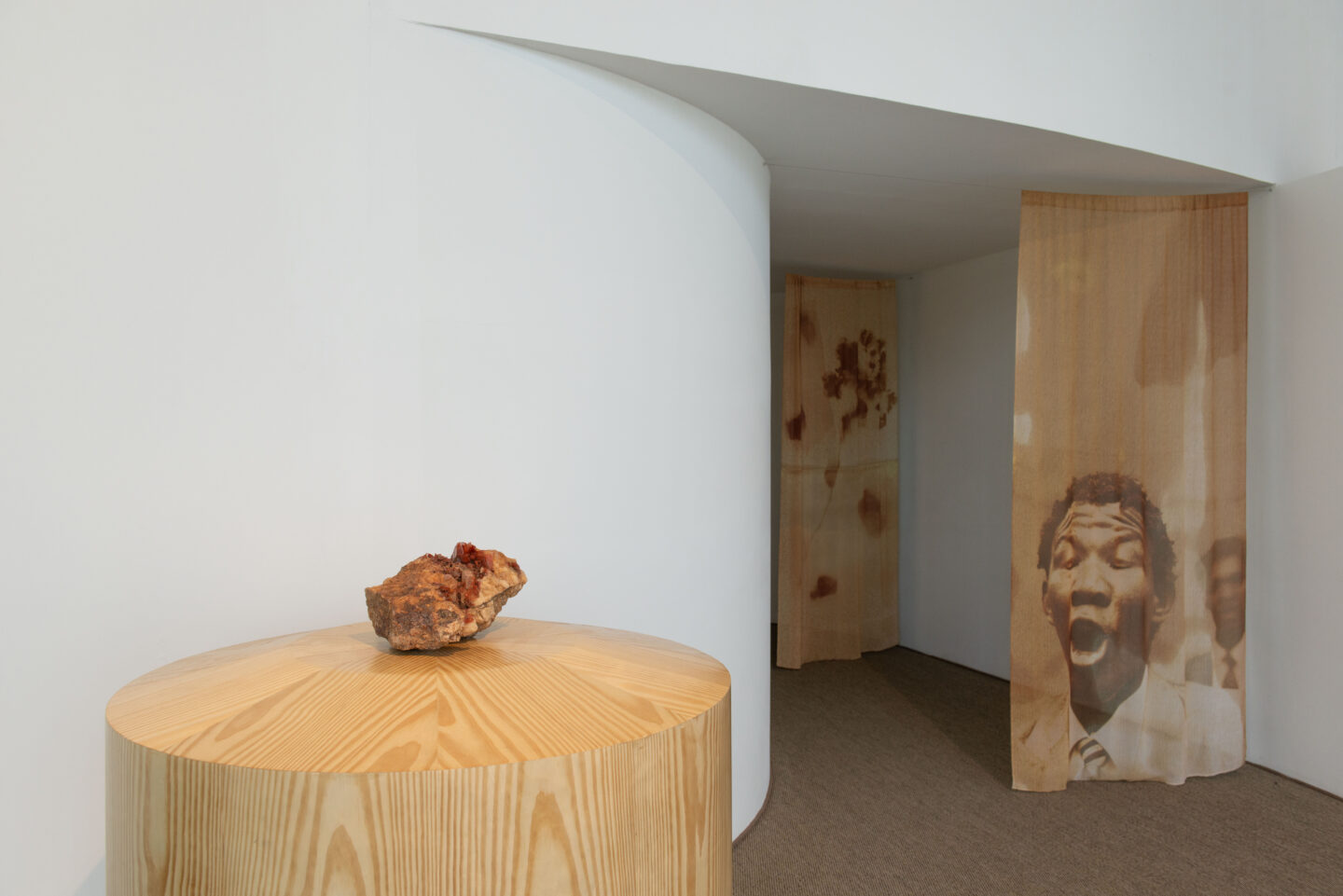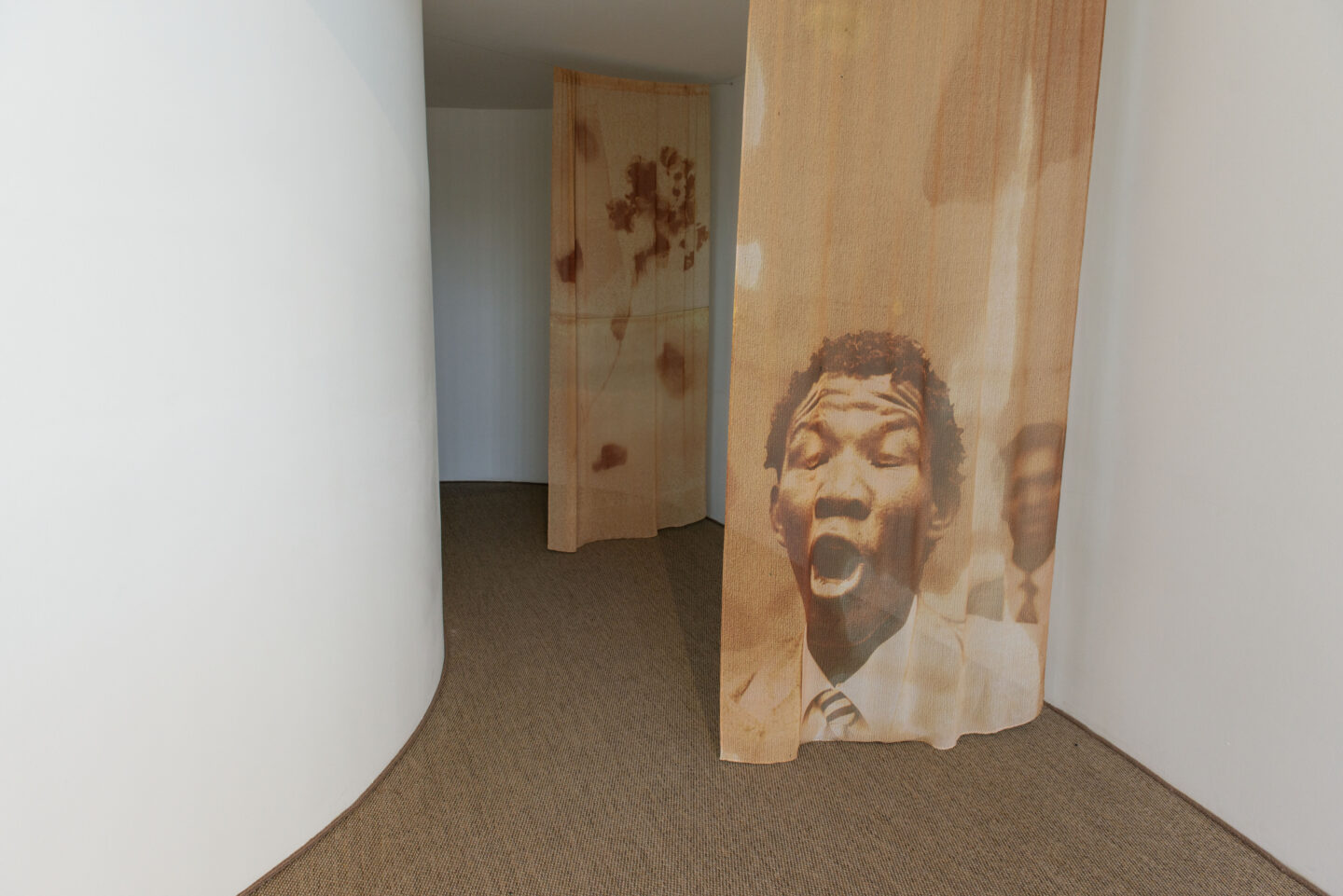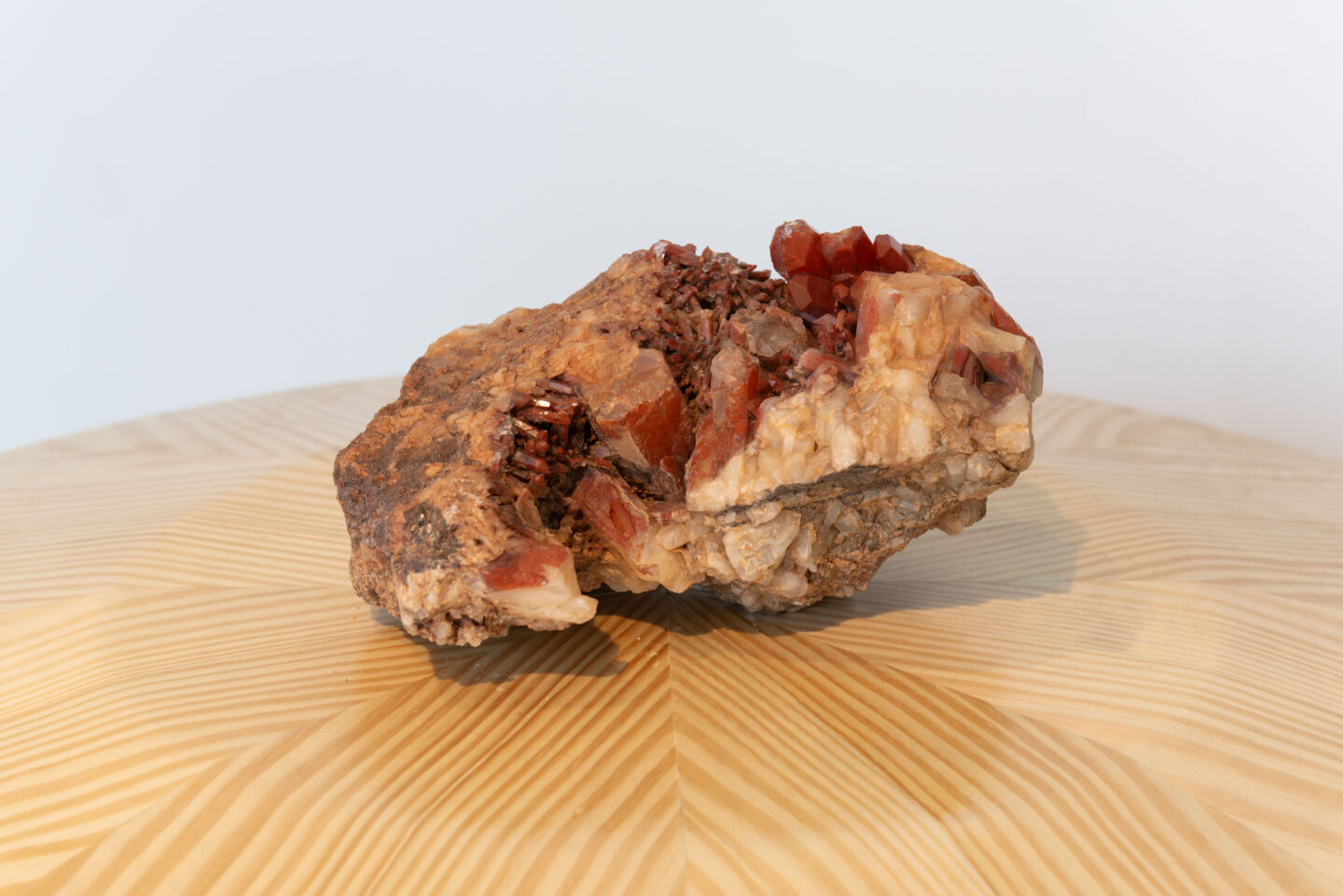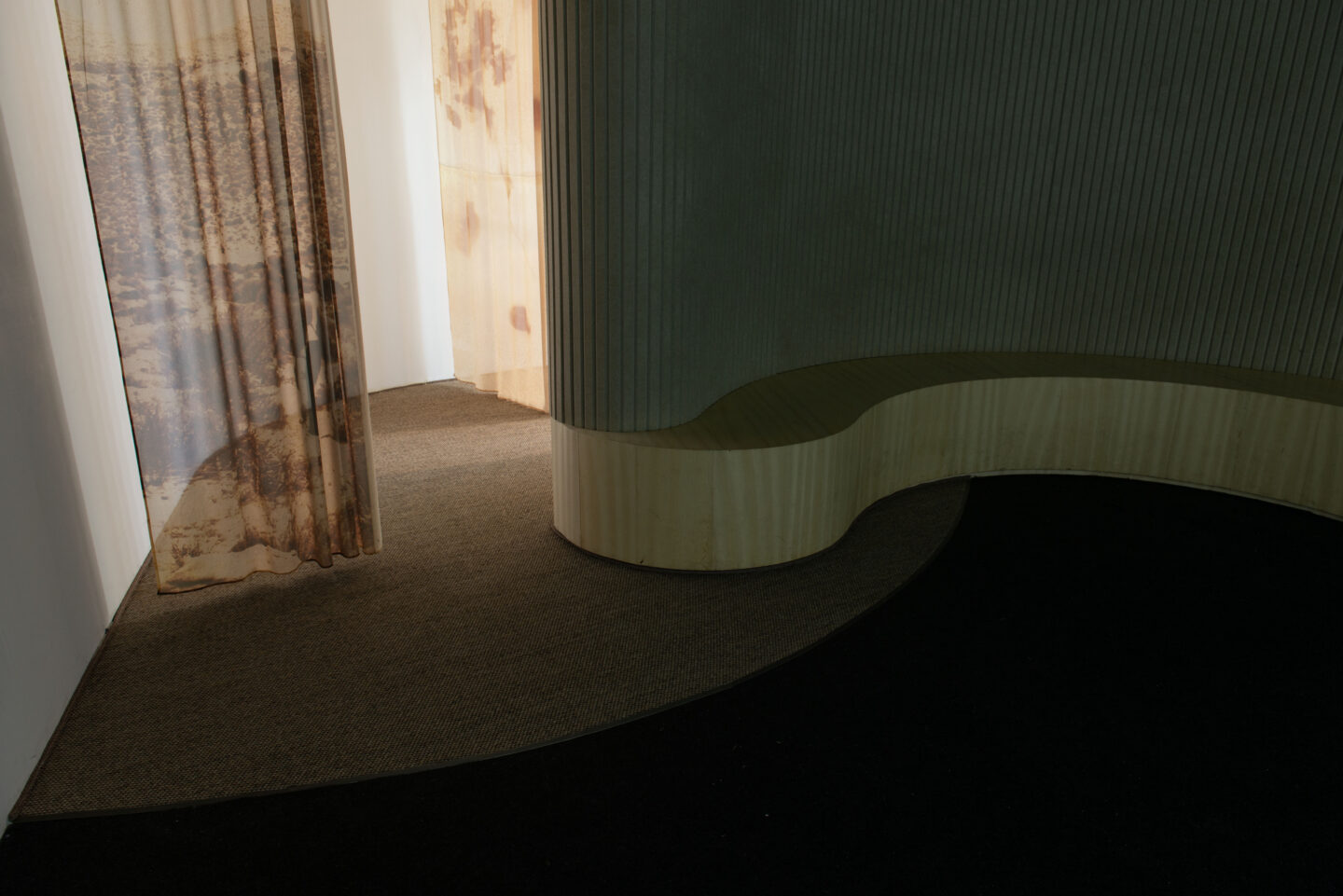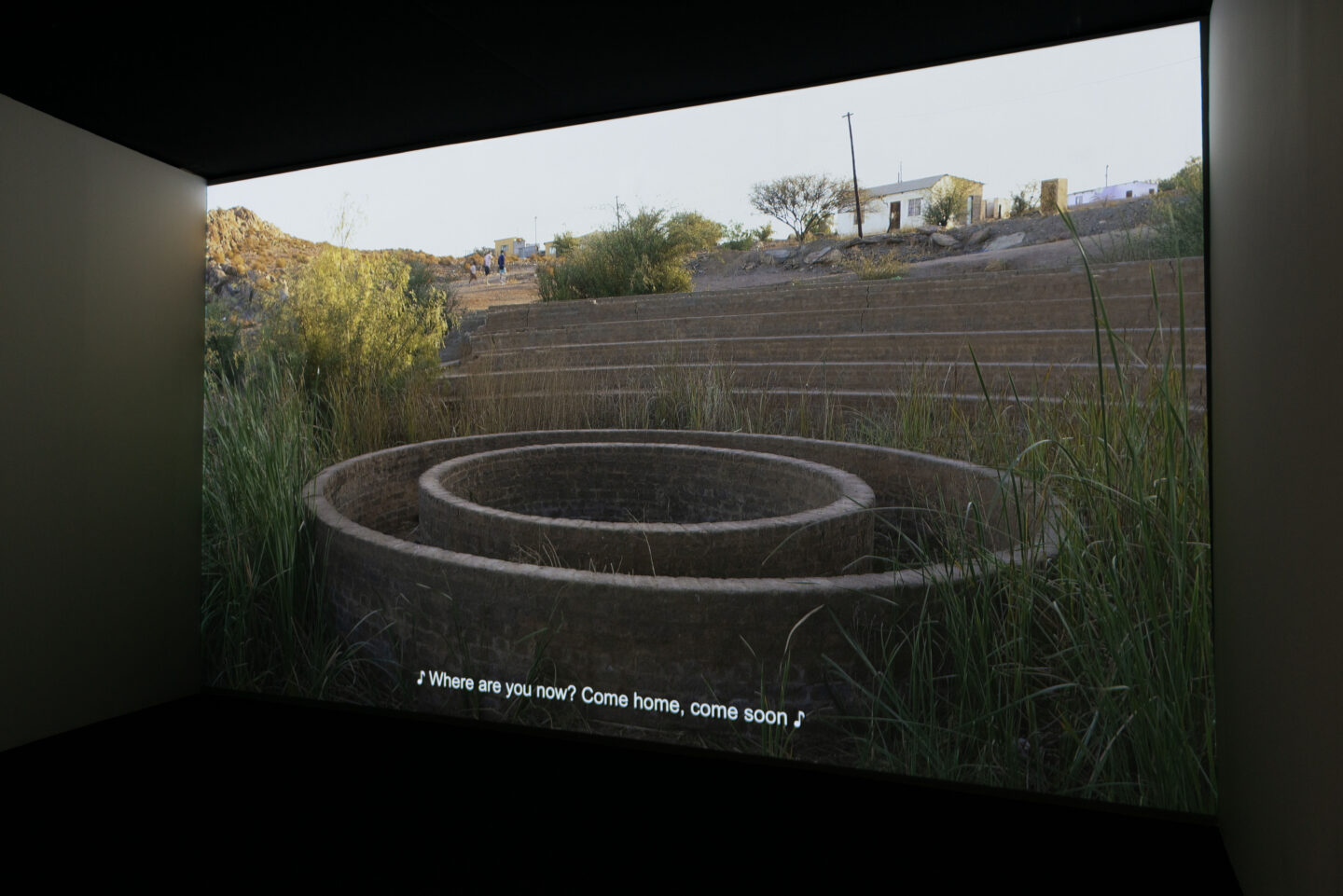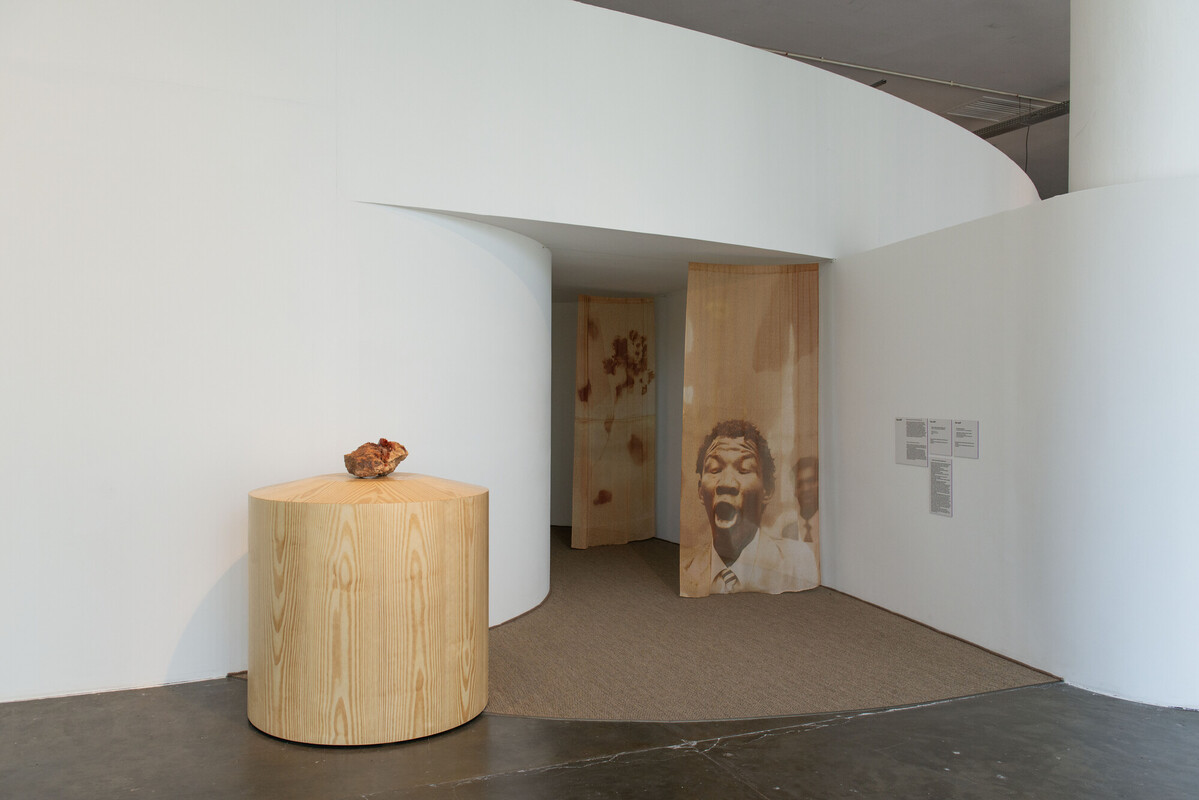
Ilze Wolff
A “practice of care” is a practice of refusal that engenders regard, generosity, and conviviality within and among conditions that would otherwise be represented as abject. Ilze Wolff’s practice of care begins with the recognition of spatial relationships followed by a process of revealing the unexpected and the uncanny among the residue, detritus, depleted conditions, exhausted resources, and overlooked details and existences of daily life. This kind of care is a reclamation of history, self, epistemologies, and liberty that are a priori to European colonization and enlightenment. It is a cultural production of the previously unimaginable yet previously known that produces a poetry that is not romanticized, fetishized, or made sentimental.
In the late 1970s, the design and construction of the Steinkopf Community Center was commissioned by the Anglo American company which mines platinum, copper, diamonds, thermal coal, and iron ore in South Africa. Steinkopf was founded as a religious mission in 1817 by the London Missionary Society among the San Indigenous people of northwest South Africa. The population of the town at the time of the construction of the center was approximately 6,000 people most of whom were women and children; for most of the men lived and worked in the mining camps in the Western Cape. “The intention was to provide an inviting building, accommodating all the needs of the people and which also opens up more environmental options for the community. It is designed to serve the community and not the reverse.” ¹The irony of this statement and the architectural design is not lost in Ilze Wolff’s Hophuis, an Afrikaans word that translates to “hop house.”. Yet, using personal narrative; music and sound; photographic history;, architectural representations;, and elements of the area’s natural ecology, Wolff’s installation reveals a “choreography of care and conviviality” that survives the entanglements of religious suppression, systemic racism, and economic exploitation and extraction. Wolff uncovers how the building bears witness to the local Indigenous knowledge, memories, stories of joy, liberation, mutual support, and solidarity of those people who used the center as a gathering space and a site of resistance.
mario gooden
- Vista da instalação de Ilze Wolff durante a 35ª Bienal de São Paulo – coreografias do impossível © Levi Fanan / Fundação Bienal de São Paulo
- Vista da obra Oom Fanie se Klip [A pedra de Oom Fanie] de Ilze Wolff durante a 35ª Bienal de São Paulo – coreografias do impossível © Levi Fanan / Fundação Bienal de São Paulo
- Vista da instalação de Ilze Wolff durante a 35ª Bienal de São Paulo – coreografias do impossível © Levi Fanan / Fundação Bienal de São Paulo
- Vista da obra Oom Fanie se Klip [A pedra de Oom Fanie] de Ilze Wolff durante a 35ª Bienal de São Paulo – coreografias do impossível © Levi Fanan / Fundação Bienal de São Paulo
- Vista da instalação de Ilze Wolff durante a 35ª Bienal de São Paulo – coreografias do impossível © Levi Fanan / Fundação Bienal de São Paulo
- Vista da obra hophuis: a site of dance and solidarity [hophuis: um lugar de dança e solidariedade] de Ilze Wolff durante a 35ª Bienal de São Paulo – coreografias do impossível © Levi Fanan / Fundação Bienal de São Paulo
Ilze Wolff (Cape Town, South Africa, 1980. Lives in Cape Town) works with architecture, film projects, public interventions, and orchestrates exhibitions. She is the co-founder of the publication and research platform Pumflet: Art, Architecture and Stuff, which focuses on the black social and spatial imaginaries and has been featured in various local and international platforms such as the Chicago Architecture Biennial (USA) and LUMA Arles Afriphon (France). She has published Unstitching Rex Trueform: The Story of an African Factory (2017).
1. Architecture SA, Spring 1980, p. 13.

 Português
Português